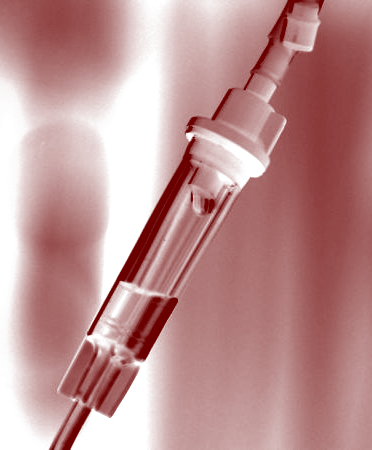Saline shortage causes concern
 Australia's healthcare system is facing a critical shortage of saline IV fluids.
Australia's healthcare system is facing a critical shortage of saline IV fluids.
The Therapeutic Goods Administration (TGA) has issued a shortage alert indicating that IV fluid supplies are expected to remain constrained throughout 2024.
This shortage results from global manufacturing issues and an unexpected surge in demand.
Assistant Minister for Health Ged Kearney says IV fluids play a vital role and have “a myriad of uses” in the health system.
The fluids are essential for administering medications such as chemotherapy and anaesthesia directly into the bloodstream, supporting kidney function in dehydrated patients, and maintaining blood pressure in those with sepsis or blood loss.
The Royal Australasian College of Physicians says that while there are alternative methods for administering medications, such as oral fluids or slow intravenous injections, these are not always feasible or safe.
IV fluids are particularly crucial during surgeries, where patients are unconscious and losing fluids from open surgical sites.
The Australian Medical Association has warned that some surgeries may need to be cancelled, with non-cancer elective surgeries likely to be the first delayed in the event of insufficient IV fluid supply.
The TGA is implementing measures to alleviate the shortage of IV fluids. The agency has approved the importation of multiple overseas-registered saline fluids, sanctioned under Section 19A of the Therapeutic Goods Act 1989, which allows the introduction of alternative saline products from international suppliers into the Australian market.
State and territory health departments manage the supply of IV fluids in public hospitals.
The TGA is working closely with these departments, advising them on newly approved suppliers and coordinating efforts to streamline the distribution process.
The agency is also collaborating with the three primary Australian suppliers - Baxter Healthcare, B.Braun, and Fresenius Kabi - to overcome regulatory barriers and boost production.
The full TGA statement outlines the critical nature of IV fluids for routine and emergency medical care, highlighting their role in fluid replacement, resuscitation, and medication administration.
The TGA reassures the public that it is committed to resolving the shortage by approving alternative products and maintaining open communication with health departments and suppliers.
The shortage also extends to veterinary care.
The Australian Veterinary Association has expressed concern about the impact on animal health, noting that veterinarians are already facing supply issues in their clinics.







 Print
Print